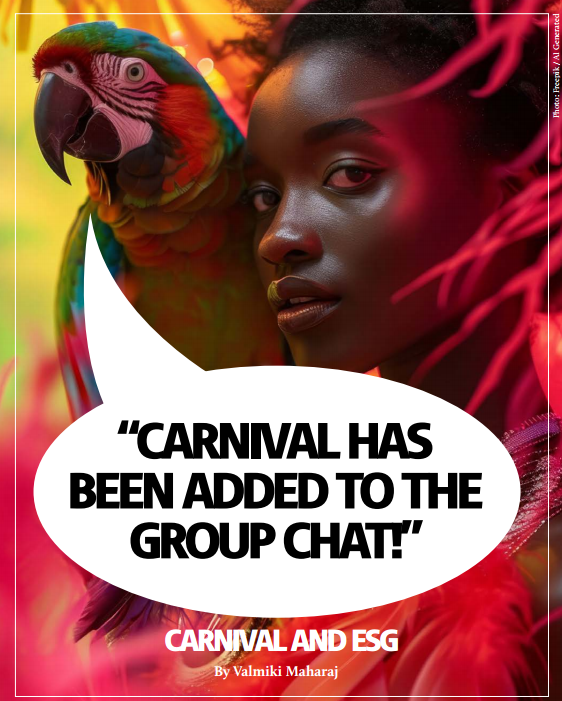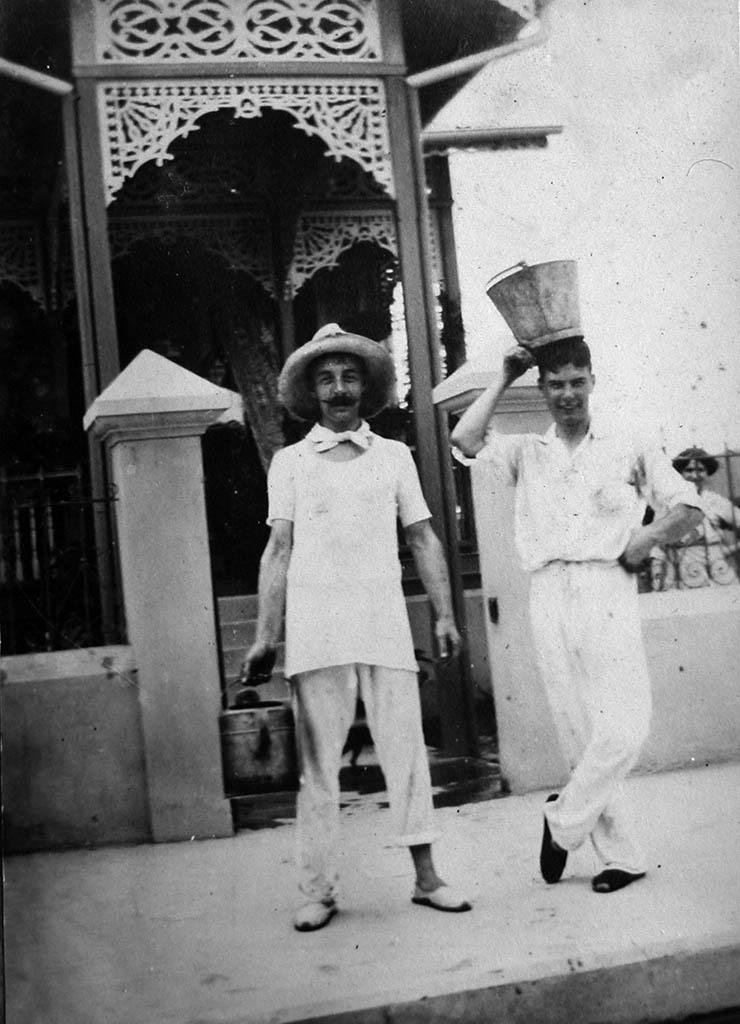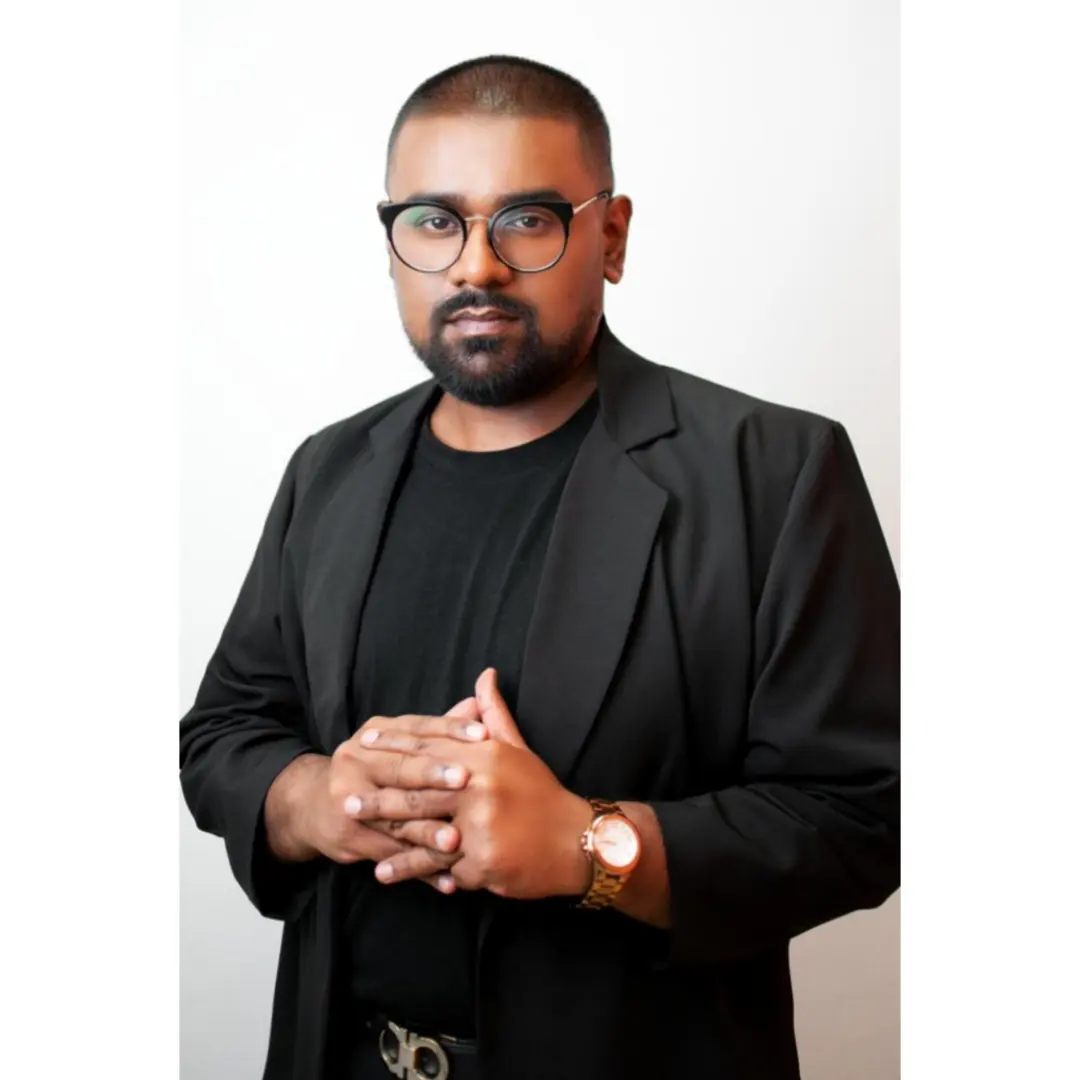C A R N I V A L
Has Been Added to the Group Chat
By Valmiki Maharaj

LINKAGE Q3 (2024) - OPPORTUNITY IN ADVERSITY
A
couple months ago, I was invited to be a part of my first AMCHAM panel at the AMCHAM T&T’s 2nd Annual ESG Conference.
When I walked into the room, I felt it was an opportunity not just for me, but for the entire industry designers, band leaders, artists, innovators, and communicators. I was reminded of the power of being in a space where seeds for the future are being planted.
Carnival is the great equaliser, where people stand, jump and celebrate with each other. Our carnival is participatory and encourages a pause in regular life. People of all different segments of society stand on our streets, in our cities, shoulder to shoulder which, in itself is powerful and important in the context of today’s society.
Carnival is the great communicator and connector. Bands have gone past the days of two-days-on-the-road. They have grown into lifestyle brands that have complex widespread global networks, reaching communities of people that are connected by their heritage and their love for the Caribbean.
I mentioned on the panel that this is something that consumer brands recognised long ago and use to their advantage. Carnival and its yearly calendar of events has a direct impact on consumer goods’ sales and activity. They recognise the importance of our communities, into which they have a direct reach, and weave their brands into our cultural fabric both regionally and abroad.
Often I hear about amazing and valuable projects in the carnival space that have dropped by the wayside, perhaps due to insufficient communication or publicity, even though they were initiatives that I know would have appealed to the wider community and benefitted them. This is not me presuming success or lack thereof, but rather questioning what the definition of success is, and how that definition can be expanded if there were greater collaboration within the space.
In the short time that I was in that room on that day, many conversations and potential initiatives were brought forward, exploring increased possibilities if we engaged more. What core shared goals could be achieved if we harnessed the power of our carnival, festivals, and culture to make our initiatives more mainstream?
I
n my own story, over the past few years, THE LOST TRIBE has partnered with UN Women on campaigns to achieve our shared goals of gender equality and sustainability. Our shared resources have led to initiatives that speak to gender equality and to carnival being a festival for women, by women, highlighting some of their stories:
- safety and violence against women in the context of carnival in a campaign launched for the 16 Days of Activism against Gender-based Violence; and
- a series that speaks to race, gender and Caribbean realities in the context of Black Lives Matter movement during the pandemic years.
This collaboration with UN Women showed that if you ‘Add Carnival to the chat’, meaning partnering with organisations such as ours, worthwhile projects can reach and impact wider communities.
In many ways carnival is the original ESG and sustainability festival way before its time… formed in the name of good governance, equality, and designing sustainably since the design of the first carnival character, the ‘Negue Jardin’.
The shape of carnival has changed since then, as has its size and sustainability. Brands over the years continuously approached the goal of enhanced sustainability in different ways. For example, the ‘carnival cup’ has become a sought-after souvenir that masqueraders reuse not only on the road but in their daily lives and activities long after the festival. Goodie bag items presented to patrons in fetes and during activities throughout the year promote reusability. The theme of reusability has also entered the design discussion, particularly with THE LOST TRIBE where costumes are designed with the intention of reuse. Pieces are often reused for fashion or other purposes, as in home decoration. Encouraging designers to create pieces which can be reused is now part of our brand culture.

Two “Neg Jardin” characters in 1913.
(Photo: Paria Archives / Carr Collection)
The TRIBE group has partnered over the past years with the Carnicycle brand to recycle materials and frames after the festival. Carnicyle collects costume parts from our camps after carnival and deconstructs them for reuse in new projects.
TRIBE has pioneered the approach of evolving the mas camp operation to include principles of good governance. Day-to-day operations at the camp, HR relations, wages, benefits, and standardisation have been areas that have been improved on over the past 20 years.
Carnival has always been a part of the ESG conversation and can further its contribution by forming valuable partnerships. As we prepare to launch the 2025 Carnival festival schedule, I look forward to seeing our growth together.
Video References:
Faces of the festival :
https://www.youtube.com/watch?v=JQ17Et6B35w
https://www.youtube.com/watch?v=wBpKN2X8eHs&t=42s
https://www.youtube.com/watch?v=XRfQDXpyrF4&t=48s
https://www.youtube.com/watch?v=FXLQ5B053H4
https://www.youtube.com/watch?v=T58KXeKjC3I&t=15s
16 days of Activism :
https://www.youtube.com/watch?v=6sS7fcoxiDc
UNlearn Series ep 1 :
https://www.youtube.com/watch?v=QY3Acmms1Hw&list=PLRiVCG4wTQGgpBYsv2Ym2ykFDl6EFBk1P
ABOUT THE AUTHOR

Valmiki Maharaj is the Co-founder, bandleader, and Creative Director of THE LOST TRIBE.